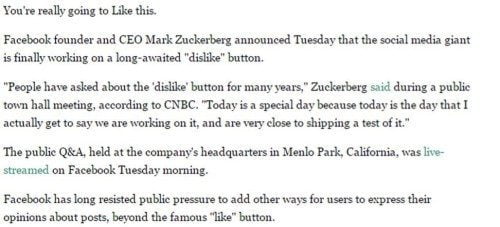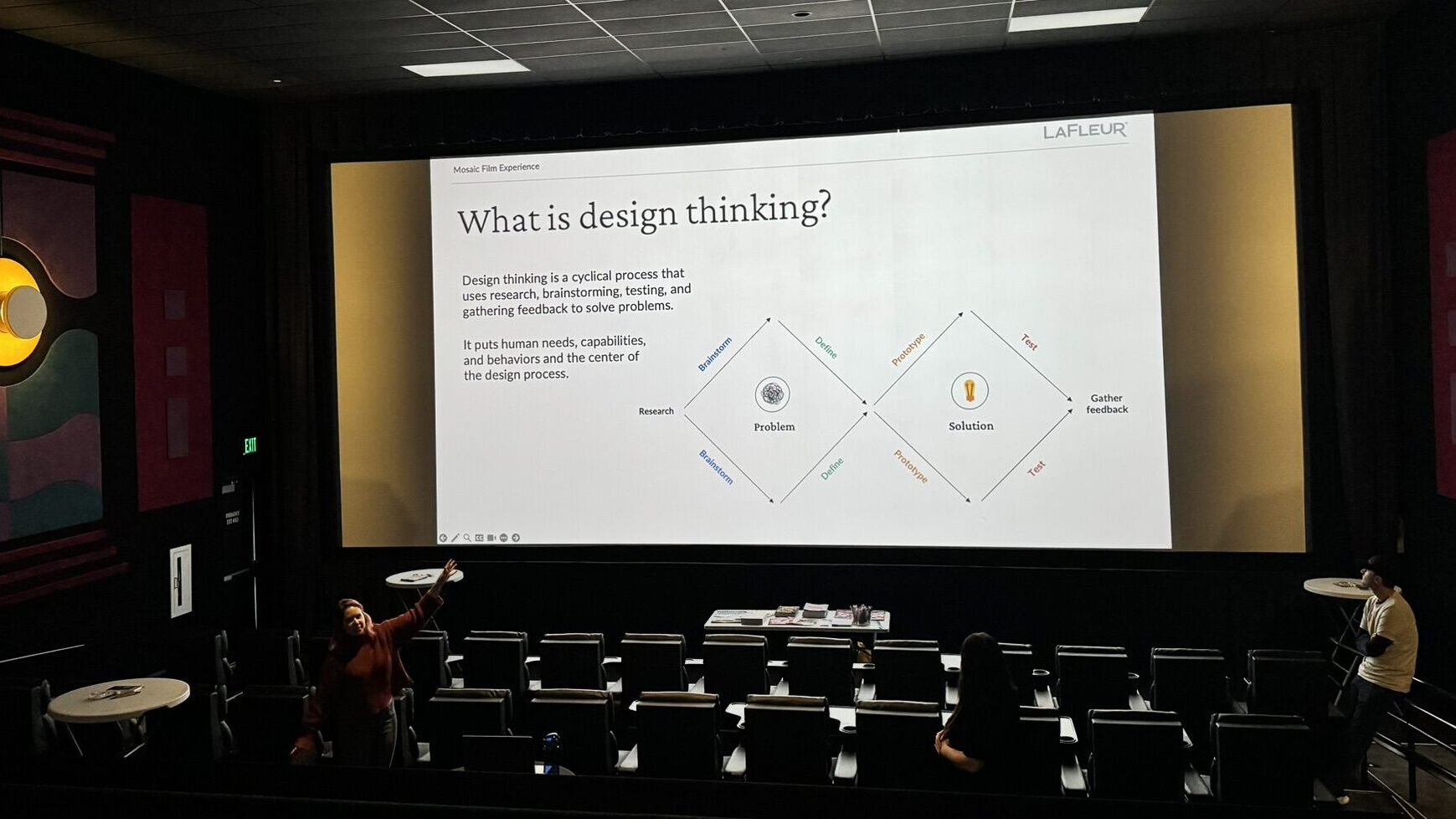As a college professor who regularly teaches (and who prefers to teach) foundational writing courses that every student is required to take, I’m faced with a lot of hostility—usually on the first day of class when I ask each student to explain why he or she is taking my class. While about half of them say, “to get an A” (that’s a criticism of our society for another day), I’m also met with my fair share of shrugs and plenty of students who simply say “because I have to.” Naturally, there are always a few Goody Two-Shoes who try to parade their virtue by saying, “to learn more about writing.” (In a writing class? You don’t say!)
These typical responses are indicative of a few deeply held beliefs. Chief among them is that good writing doesn’t matter anymore. And honestly, I understand this belief on some level.
Prestidigitalization
After all, we live in the Internet Age. It’s an age where writing cover letters and crafting resumes has been replaced with filling out pages upon pages of online forms requesting one-word responses crammed into tiny text-entry fields.
It’s an age where there’s an entire humor industry built around “autocorrect fails”—where people’s phones “correct” messages in humorous ways. (My wife’s phone once autocorrected my name to “Gandalf,” which I’m sort of fine with, namely because it speaks to the frequency with which we exchange Tolkien references via text message.) Of course, the entire premise for this kind of humor is that computers usually correct things correctly and only sometimes make humorous mistakes.
It’s an age where computers can almost describe images better than humans. (And where computers may actually dream of electric sheep.) It’s an age where most word processors have respectable hunches about when you’re using the wrong “two,” “too,” or “to.” And it’s an age where computers can write entire novels and imaginary scientists can even get computer-generated papers published by major academic journals and become cited by real “scientists.”
So, if technology can fix our mistakes or do our writing for us, what’s the incentive to write well?
More Is More
On top of technology becoming better and better at handling the bothersome writing-related tasks of our everyday lives, people are also writing more (and reading more) than they probably ever have in all of history. Many of us remember a time a mere 20 years ago when there was barely such a thing as email and when there was definitely no such thing as texting. While I don’t have any concrete numbers, my intuition is that the average number of words written and read today is orders of magnitude higher than it was 20 years ago.
In fact (you might need a second to process this), humans now create more information every two days than was created from the dawn of civilization to 2003. It’s easy to see how: you can watch the Internet happening in real time.
So, if people are already doing so much writing—what’s the incentive to write well?
If You Catch My Gist
As if to add insult to injury, there’s an ever-growing culture of voracious content consumption, appropriation, and proliferation (rather than appreciation) that pervades the Internet and nearly all other communications outlets, both print and digital. Many sites don’t even bother with paragraphs and instead just throw together 10-15 roughly organized sentences and call it an “article.” Instead of actually telling a story, they list a haphazard series of facts and leave it to readers to fill in the blanks, literally.
Of course, people may not even read those ramshackle lists of factoids anyway. In a hilarious April Fool’s joke, NPR pranked their online readers a few years ago to point out exactly how many people simply read headlines and don’t bother to digest the content of articles online (and then subsequently proceed to aggressively opine in the comments section).
So if no one really cares about the quality of content—or if any content even exists beyond the headline—what’s the incentive to write well?
Pancake People
In what is undoubtedly one of the cornerstone texts on this issue, Nicholas Carr’s “Is Google Making Us Stupid?” delves deeply into how technology has affected our brains and our society throughout history. While it’s tempting to quote his article in its entirety, one of his more salient points is that
The Net isn’t the alphabet, and although it may replace the printing press, it produces something altogether different. The kind of deep reading that a sequence of printed pages promotes is valuable not just for the knowledge we acquire from the author’s words but for the intellectual vibrations those words set off within our own minds. In the quiet spaces opened up by the sustained, undistracted reading… we make our own associations, draw our own inferences and analogies, foster our own ideas.
He also quotes from the playwright Richard Foreman’s essay “The Pancake People, Or ‘The Gods Are Pounding in My Head’”:
Today, I see within us all (myself included) the replacement of complex inner density with a new kind of self-evolving under the pressure of information overload and the technology of the “instantly available.” A new self that needs to contain less and less of an inner repertory of dense cultural inheritance—as we all become “pancake people”—spread wide and thin as we connect with that vast network of information accessed by the mere touch of a button.
The tacit implication of both authors is that our reading habits and writing habits are inexorably linked. This is something that, as an educator, I’ve known for a long time. Poor readers are poor writers and vice versa. The fragmentary, scattered, and simplistic nature of the vast majority of online content (as well as personal and even professional communication) has only served to make people’s writing increasingly fragmentary, scattered, and simplistic.
I suspect that almost everyone who is still reading has felt the effects of this. For example, if I am sending out questions or requests in an email, I now need to make numbered lists. Writing in complete sentences and paragraphs often results in only partial answers or—worse—radio silence. When I get emails with questions or requests, they almost certainly necessitate follow-up to clarify exactly what was being asked in the first place. Again, numbered lists are often helpful.
More and more, the average person’s ability to focus on a single task and connect the dots is eroding—probably because the most taxing intellectual work the average person does is blitz-scroll through their “news” feeds. We skitter across ideas, sites, and articles at the fastest speed our Internet connections will allow. The information we glean from this behavior never has the chance to solidify. We’re not even fully-formed pancake people—we’re the sloppy batter that’s in the bowl.
While this entropic tendency could be due to a feedback loop of poor writing leading to worse reading and even poorer writing—as Carr and Foreman suggest—it could also be a result of the rapidly shortening attention span of average online users, which is now down to 8 seconds, according to a study by Microsoft. In fact, on average, 55% of visitors to any given web page leave within 15 seconds. And the average visitor to this page who actually sticks around will only read about 18% of the text. So if you’re still with me, you’re among the smallest of minorities. I like to think of us as “the elite,” though.
What Does Your Writing Say About You?
Regardless of the cause, the Internet Age has brought about an explosion—and concurrent dilution—of written content. It has often been said that print is dead, and it may even feel like we’re moving into a place where writing as we classically define it may also be passing away, but there’s more to the story than how many visitors actually read content online. As Benjamin Disraeli purportedly once said, “there are three kinds of lies: lies, damned lies, and statistics.” There are times and places where statistical data is important, if not crucial, to a task. But language–particularly the English language–is not easily quantified in any sense. And as much as we’d like to boil writing down to a science (particularly in order to make computers do it for us), it still remains an art. And people are surprisingly good at recognizing good writing and bad writing when they see it.
After all, despite the statistics and seemingly cavalier approach most people take with the conventions of the written word, about 45% of employers in a recent survey were taking steps to implement employee training to improve grammar and other composition skills—a clear sign that professional writing is still important.
And Millennials, for as much grief as we all give them, are also an interesting case study in the importance of writing well. They have grown up in a digital world inundated with lackluster, disjointed content where computers correct their mistakes and they’re rarely asked to articulate themselves beyond 140 characters. Yet they have strong opinions about the importance of good writing: 71% claimed that they often found spelling mistakes in correspondence from others, and 74% said they were bothered by those errors on social media—more than any other age group polled.
There’s even a national celebration of writing every year: October 20 is the National Day on Writing. It’s a time to recognize both the vast amount and variety of writing that we all do, but it’s also a time to recognize how important writing is to our day-to-day lives. Just take a moment to consider: how much time do you spend reading and writing—as opposed to conversing—each day? The modern truth is that we spend a lot (perhaps even the majority) of our interpersonal communication time writing to strangers, to colleagues, and to friends and family. From texting or posting updates about our day on social media to answering work emails to composing angry reviews online, our days are saturated with written communication.
Often, that communication isn’t just seen by one person. From social media posts to emails with a CC list, our writing gets broadcasted to a wide and diverse audience that includes not only family, friends, and acquaintances, but also peers, colleagues, and complete strangers.
And the way we write communicates more than just the words themselves intend.
While the occasional typo may often be forgiven—unless you’re Robert Barker and Martin Lucas—being an effective writer is going to become an increasingly important skill as writing in all its forms continues to grow as a primary vehicle for communication in the digital age.
But Is Good Writing Still Relevant Online?
In the Internet Age, nowhere is good writing more important than in your online presence, whether for yourself or your organization. While the majority of your web page, blog post, or profile visitors will almost certainly leave before they’ve even had a chance to scroll down, the ones that do stay are the ones that you want reading your content. And they’re the ones you want to impress because they have a need and came to you looking for educational, informational, and well-crafted content with real value in a digital landscape littered with disorganized, vacuous, and unoriginal offal that is created and consumed with roughly the same amount of thought we put into whether we should like the latest adorable photos of our best friend’s puppy.
Providing well-crafted, informational, and educational material online is where the future of content marketing is headed. Analysts and ever-more sophisticated search algorithms are beginning to realize that poorly written and terse content is, thankfully, not the kind of content people are actually looking for online anymore. More and more, people are searching for well-developed and thoughtful writing, especially when they have a specific need. In a study of over 20,000 keywords, for example, results showed that the average length for all of the top 10 search engine results was over 2,000 words. Other research indicates that using long-form content increases conversions by 30 to 40 percent. Furthermore, long-form content consistently gets more traction on social media.
Thus, while the short history of the Internet Age has been one of even shorter attention spans, fragmented information, and diffusion, the future looks a bit brighter as we begin to harness the power of the Internet for the creation and promotion of original content that informs and fosters dialogue—content whose creation requires a mastery of the written word.
And that mastery isn’t developed or edified by skimming through and skipping across the types of shallow content that have traditionally been thrown together to gain high (and mostly meaningless) click rates in order to reap advertising dollars. That mastery is derived from deep reading. After all, everyone’s reading and writing skills need to be acquired. They’re not innate like our ability to speak. And just like other acquired skills, deliberate practice is crucial for not only maintenance, but improvement. In one study performed by researchers at Liverpool University, for example, the more difficult and complex a reading task was, the more involved a person’s brain became. And other studies indicate that deep reading makes people smarter: regular readers have larger vocabularies, more world knowledge, and better abstract reasoning skills.
Where does that enriching, multifaceted reading material required for bolstered intelligence come from? It comes from exceptional writers. So, my ultimate hope is that among those who just “want to get an A,” my future students will shrug a little less often when I ask them why they are taking my class and will instead indicate a belief that being able to write better will help them navigate the ever-changing and turbulent waters of an expanding digital world whose uncertain future will certainly depend on prolific writers.
Need Expert Online Writing and Marketing Services?
If you or your organization haven’t gotten your digital marketing oars wet (or it feels like you’re sinking amongst the competition), it’s time to call LaFleur at 888-222-1512. We see what’s on the digital horizon, and we will work with you to develop a holistic and innovative online marketing strategy to improve your bottom line. Contact us today to begin your voyage.
Related Digital Marketing Articles
- How to Write a Successful Blog Post, the Right Way
- Your Website Copywriting Matters. Here’s Why — And How to Improve.
- Our Editorial Process for Creating Truly Outstanding Website Content
References
Associated Press. (2015, August 28). Instant message-loving Millennials hate bad grammar more than any other age group. Daily Mail. Retrieved from http://www.dailymail.co.uk/news/article-3214670/Survey-General-LOL-irked-grammar-spelling-slips.html
Barrie, J. (2014, November 27). Computers are writing novels: Read a few samples here. Business Insider. Retrieved from http://www.businessinsider.com/novels-written-by-computers-2014-11?r=UK&IR=T
Carr, N. (2008, July). Is Google making us stupid? The Atlantic. Retrieved from http://www.theatlantic.com/magazine/archive/2008/07/is-google-making-us-stupid/306868/
Gonzalez, R. (2014, November 24). Computers wrote the caption for this photograph and changed everything. io9. Retrieved from http://io9.com/computers-wrote-the-caption-for-this-photograph-and-ch-1660450610
Hern, A. (2015, June 18). Yes, androids do dream of electric sheep. The Guardian. Retrieved from http://www.theguardian.com/technology/2015/jun/18/google-image-recognition-neural-network-androids-dream-electric-sheep
Lincoln, J. (2015, September 28). The SEO and user science behind long-form content. Search Engine Land. Retrieved from http://searchengineland.com/seo-user-science-behind-long-form-content-230721
Microsoft Canada. (2015). Attention spans: Consumer insights. Microsoft. Retrieved from http://advertising.microsoft.com/en/cl/31966/how-does-digital-affect-canadian-attention-spans
Paul, A. M. (2013, June 3). Reading literature makes us smarter and nicer. Time. Retrieved from http://ideas.time.com/2013/06/03/why-we-should-read-literature/
Shellenbarger, S. (2012, June 20). This embarrasses you and I*: Grammar gaffes invade the office in an age of informal email, texting and Twitter. The Wall Street Journal. Retrieved from http://www.wsj.com/articles/SB10001424052702303410404577466662919275448
Siegler, MG. (2010, August 4). Eric Schmidt: Every 2 days we create as much information as we did up to 2003. TechCrunch. Retrieved from http://techcrunch.com/2010/08/04/schmidt-data/
Stanovich, K. E. (1993). Does reading make you smarter? Literacy and the development of verbal intelligence. Advances in Child Development and Behavior 24: 133-180. Retrieved from http://www.ncbi.nlm.nih.gov/pubmed/8447247
Van Noorden, R. (2014, February 24). Publishers withdraw more than 120 gibberish papers. Nature. Retrieved from http://www.nature.com/news/publishers-withdraw-more-than-120-gibberish-papers-1.14763







